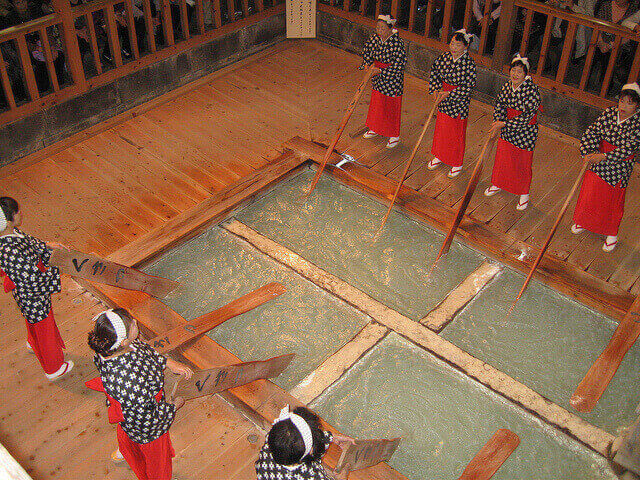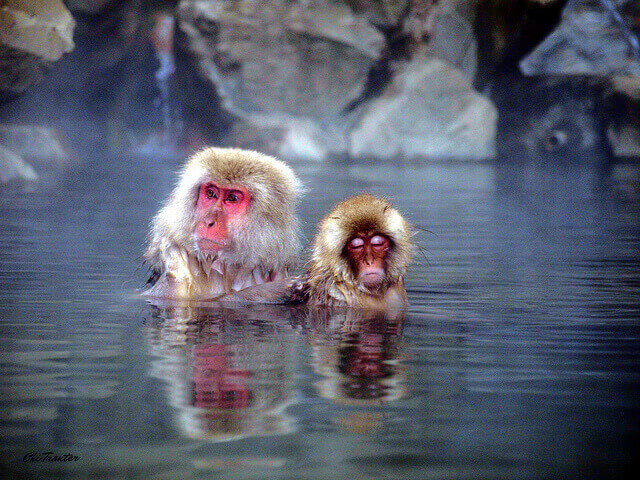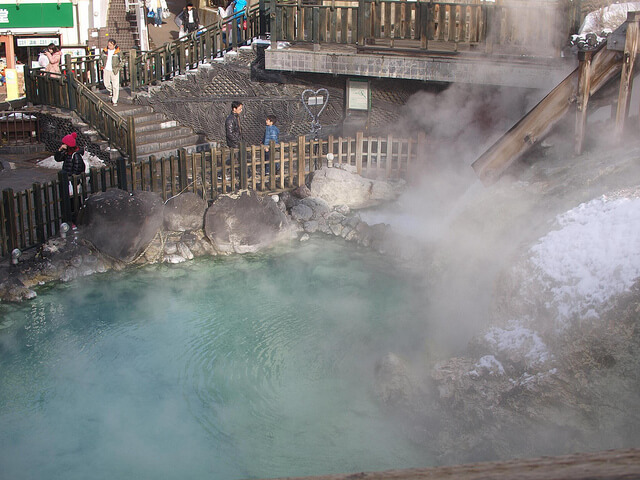
Did you know there are differences in Onsen water?
Let's learn about the different health benefits so we can enjoy them more!
This post may contain affiliate links. If you buy through them, we may earn a commission at no additional cost to you.
It is well known that onsen are an important part of Japanese culture, but many people do not know that there are differences between onsen water. The history of onsen in Japan is long. Historically, they were used as a way to heal diseases, called 'Toji'. There are many kinds of onsen and each one has different effects. In every onsen there are signs showing the kinds of water and their effects, so it is possible to learn about them before you take a bath. To know and understand these differences is an important way to grow a deeper appreciation and understanding of onsen culture.
Tanjun-sen (Simple water)
Tanjun-sen is probably the most common type found in Japan.
While they are called "Tanjun (simple)", it does not mean "the contents of the water are simple." We call all water where the mineral content does not reach a specific amount "simple". And even within the same typing there are many kinds. Since they don't have any special effects, the stimulation for the skin is very mild and good for a wide range of people, from babies to the elderly. I recommend people who take onsen for first time to take this type of water.
A famous onsen with this Tanjun-sen water is Gero-onsen, in Gifu prefecture or Akanko-onsen, in Hokkaido.
Gero-onsen, Gifu prefecture
Akanko-onsen, Hokkaido
Sansei-sen (Acidic water)
Water which has a strong bacterial effect and is often used as a treatment is an acidic water called Sansei-sen.They works for healing scars, athlete's foot or chronic skin diseases. This water also works well making your skin more beautiful since the acid peels off old skin on the surface. This acidic water is made with a mixture of volcanic gas and ground water, and is said to be a very rare kind of water mostly found only in Japan. Since the effect and stimulation is very strong, there are some people who feel irritation on their skin. This onsen is not recommended for older people, sick people or people who have sensitive skin.
Please make sure to wash all onsen water with fresh water after taking this acidic onsen and do not drink this water, otherwise your stomach will be hurt by the acid.
Kusatsu-onsen, which is one of the most famous onsen in Japan, is famous for this water type.
Kusatsu-Onsen, Gunma prefecture

Duke Yuin/Flickr
Speaking of Kusatsu-onsen, it famously features "Yumomi", a group of women who mix the onsen water while singing a Kusatsu song. But do you know why they mix the water?
The source of this onsen is very hot and it is impossible to take the onsen as it is.
Adding cold water would help to lower the temperature, but then the mineral contents will be weakened.
Yumomi were created to lower the temperature without weakening the mineral contents. This is a famous custom at Kusatsu-onsen and these days tourists can join in on the experience.
Alkaline water
Alkaline water is also called "Bijin-no-yu", which means Onsen of beautiful ladies. It is very popular, especially among ladies, because of its effect on beauty. This water feels thick and you can feel a silky smoothness on your skin straight away once you have taken this type of onsen. This alkaline water helps with melting sebum cutaneum, exfoliating the skin, making skin smooth and removing spots. For this reason it is called "Bijin-no-yu".
Tokigawa-Onsen, Saitama prefecture
Tokigawa-onsen, in Saitama prefecture has the strongest Alkaline onsen water in Japan.
Shin-yamane Onsen, Iwate prefecture
The best Bijin(beautiful lady) onsen water in Tohoku is Shin-yamane Onsen located in the north part of Iwate prefecture. People from far away come to visit this Bijin Onsen.
Iou-sen (Sulfer water)
The most notable features of Iou-sen are definetly its smell (it is sulfuric, and so is commonly said to smell of rotten eggs) and the color of the water. The water changes its color into a milky white once exposed to the air. This onsen is easy to be recognized because of its unique smell and color. I imagine there are many people who do not like this type because of the smell, but the health effects of this water are superb.
The gas which this water gives out works for clearing one's throat and is effective in helping with chronic bronchitis.
They also make your blood vessels wider, and are effective for heart diseases, arteriosclerosis, or other skin diseases.
Finally, they are used in drug addiction treatments because of its detoxification effects.
Many onsen which are said to have "great water" in Japan have this Iou-sen water. It is a very common Onsen type in Japan.
Manza-Onsen, Gunma prefecture
Manza-onsen, in Gunma prefecture has the highest concentration of sulfer water in Japan. The history of this onsen is very long and many people have visited to have their diseases healed since a long time ago. But the smell is very strong, and sometimes the smell sticks to clothes and does not come off easily... If you want to visit this onsen it might be a good idea to wear the special onsen clothes you do not care about.
Nyu-tou Onsen, Akita prefecture
This is an onsen which many onsen lovers long to visit someday. This huge outdoor bath is very famous and is also known as a children bath. It is said that after taking this onsen it is easier to become pregnant!
Sukayu Onsen, Aomori prefecture
This is an onsen which apears suddenly in the middle of Mt. Hakkoda and is famous for its huge bathtub, called "Sennin Buro (A bathtub for 1,000 people). It is very easy to recognize because the closer you get to this onsen, the stronger the sulfur smell. This is one of the greatest onsen in Japan and has a history of over 300 years.
Gantetsu-sen(Iron water)
We call water including iron Gantetsu-sen. The sourse of the water is clear in color, but it changes to a red/brown-ish color once exposed to oxygen because iron is oxidized. It smells like rust and tastes bitter.
Since you can capture iron from taking the bath, it is good for anemia, and menopausal or menstruation disorders. It also warms your body quickly, so it is good for those with bad circulation.
Since they have many positive effects work for women, this water is called Fujin-no-yu (Water of women) and is also popular as drinking water.
Tatsuno-yu onsen, Hyogo prefecture
One onsen which has this rare red colored water is Tatsuno-yu onsen in Hyogo prefecture. This onsen also includes lots of salt and tastes very salty. This will warm your body easily and it will be hard to get cold after taking this onsen.
Furo-Fushi Onsen, Aomori prefecture
Furo-Fushi Onsen, famous for its outside bath just next to the sea, is also one of the Gantetsu-sen in Japan. Furo-Fushi means never get old and never die. This onsen has been called Furo-Fushi by people for a long time because of these positive effects.
The mineral contents are very strong, so please do not take this onsen too long and make sure you wash off the onsen water with fresh water after.
Tansan-sen(Carbonated water)
This onsen water just looks like usual Tanju-sen, but once you take this onsen, many bubbles stick to your skin.This carbonated water improves your circulation, and is said to improve it three to five times more than fresh water. Because of the improvement of circulation, blood is delivered to all parts of your body. It works for removing waste from your body and detoxing. This tansan-sen is certified to have many unique effects good for your health by doctors, and often man-made carbonated water is used to heal diseases at the hospital or for making beautiful skin at Salons.
But natural carbonated onsen water is very rare and is hard to find.
Of those natural onsen, the one which is said to be the best is Nagayu onsen, in Ooita prefecture.
Nagayu onsen, Ooita prefecture
 lin Judy(快樂雲)/Flickr
lin Judy(快樂雲)/Flickr
When people take a bath, bubbles stick to the skin like this.
The information in this article is accurate at the time of publication.















